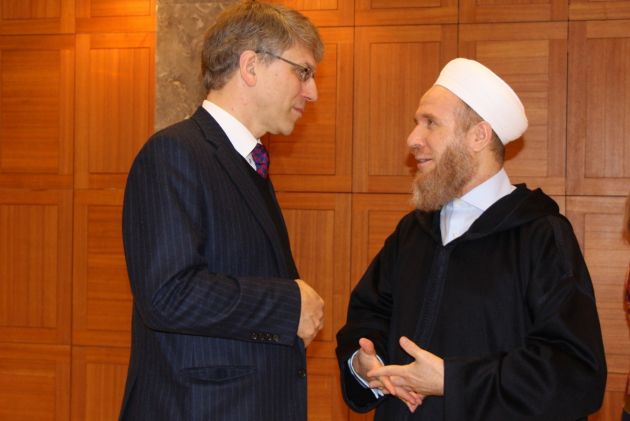World Council of Churches head tells UN body, faiths united on climate change call

GENEVA - Those living in rich countries need to change their lifestyle patterns and those in vulnerable countries should have the means to build resilience and adapt, the head of the World Council of Churches has told the U.N. Human Rights Council.
Rev. Olav Fykse Tveit, general secretary of the World Council of Churches spoke at a high level panel during the March 2015 hearing of the HRC in Geneva.
It was entitled, "The adverse impacts of climate change on States' efforts progressively to realize the right to food, and policies, lessons learned and good practices."
Tveit noted at the March 6 meeting that the Prime Minister of Tuvalu, Enele Sosene Sopoaga, was present at the panel hearing.
In September last year at an interfaith gathering organized by the WCC in New York around the UN heads of State summit, the Rev. Tafue Lusama, general secretary of the Tuvalu council of churches, expressed: "Climate change for us is a matter of life or death."
Tveit said, "He speaks on behalf of his people. Actually, he speaks on behalf of all of us.
"The climate changes make us know what we already believed in our different religions looking at the world as "creation", making us accountable for how we steward it."
Humanity's actions have a positive or negative impact on the basic conditions for the lives of all.
"The example of Tuvalu, or of Kiribati or Bangladesh that we listened to in the previous panel, should not be seen as an 'exotic' and far away reality.
VULNERABLE COMMUNITIES
"To be one, to act as one, to effectively express our togetherness we need to be sensitive to what the most vulnerable communities are experiencing. That is the test of what it means to be one humanity."
The WCC leader asserted that climate change is already affecting the right to food in vulnerable countries.
During his visit to churches in Africa, Asia, Latin America, the Pacific, as well as in countries close to the Arctic, Tveit said he realized that for many communities climate change is a "terrible threat."
"They are suffering some of its consequences: the rise of sea level and salinization of fresh water, the increase in frequency and intensity of tropical storms, the change in rainfall patterns, droughts and floods, and changing temperatures which have direct impact on their food security and sovereignty."
The WCC secretary general said he wanted to join the call of the Social Forum of the Human Rights Council which in 2010 unanimously called for the establishment of a Special Rapporteur on Climate Change and Human Rights.
"This call has significantly been advocated by the Geneva Interfaith Forum on Climate Change, Environment and Human Rights."
Such a procedure would significantly enhance the enjoyment of human rights by the most vulnerable populations who are being affected by climate related hazards.
The call has also been advocated by the Geneva Interfaith Forum on Climate Change, Environment and Human Rights.
"Such a procedure will significantly enhance the enjoyment of human rights by the most vulnerable populations who are being affected by climate related hazards," said Tveit.
He said, "We know individual change is not enough. The change should be at the community and national levels."